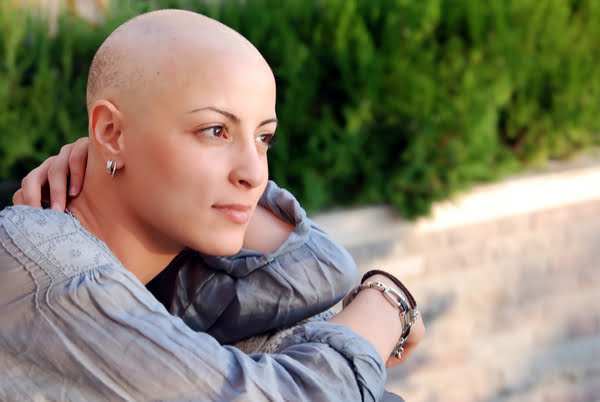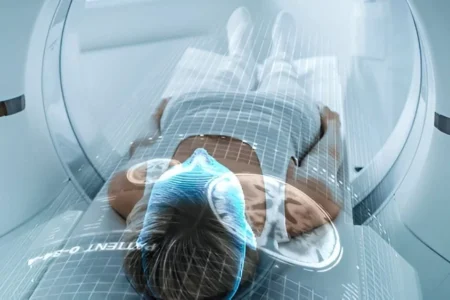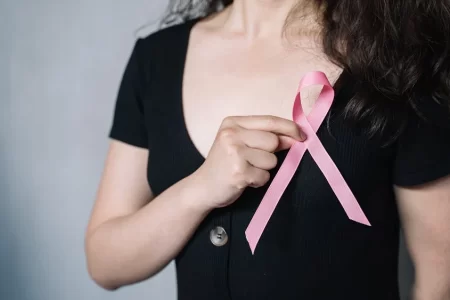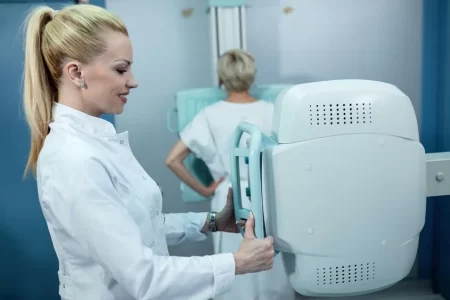Treatment for Breast Cancer
- Updated on: Jul 29, 2024
- 4 min Read
- Published on Feb 21, 2021

Surgery is a common treatment option in women for breast cancer. They also receive additional treatment before or after surgery, such as chemotherapy, hormone therapy or radiation therapy.
Choosing the Right Treatment for You
Breast cancer can be diagnosed at an early stage during screening. But if the breast cancer is diagnosed when you already have symptoms, it may be a later stage and may require a different treatment that that of the early stage cancer.
After your breast cancer is diagnosed, your doctor prepares your treatment schedule and selects options based on such as:
- your type of breast cancer
- stage of the cancer
- size of the cancer or lump
- whether the cancer cells are sensitive to any hormones
- based on your overall health
- your preferences
You should discuss your treatment with the care giving team any time and ask questions that you may have.
Breast Cancer Surgery
Various types of surgeries can be performed such as the following:
Lumpectomy (removal of the breast cancer)
Lumpectomy is also referred to as breast-sparing surgery or wide local excision. Your surgeon removes the tumor and a small portion of nearby healthy tissue in this procedure. Lumpectomy is generally done for small tumors.
Mastectomy (removal of the entire breast)
Mastectomy is a common surgical procedure that involves removal of your breast entirely. This includes removal of the lobules, ducts, fatty tissue, nipple, areola and some skin as well.
In some cases, the skin over the breast is not removed so as to perform reconstruction and retain the appearance. In some cases, the nipple may also be retained depending on the circumstances.
Sentinel Node Biopsy (removal of limited number of lymph nodes)
Sometimes, your surgeon may recommend removal of some lymph nodes that receive the lymph drainage the first from your tumor. This is to identify whether and where the cancer has spread. If no cancer is found in the lymph nodes, it is likely that the cancer has not spread to the lymph nodes and can be cured relatively easily.
Axillary Lymph Node Dissection (removal of several lymph nodes)
If your surgeon finds cancer in the sentinel lymph nodes, he may recommend removing of the nearby lymph nodes as it is likely that the cancer may have spread there.
There may be certain complications breast cancer surgery as is associated with any surgical procedure. The complications may vary based on the type of procedures you choose. Breast cancer surgery carries a risk of bleeding, pain, infection, inflammation, and arm swelling called lymphedema.
Reconstruction of Breast
Some women prefer to have breast reconstruction after surgery to improve the appearance. You can discuss your preferences for reconstruction with your surgeon.
The purpose a breast reconstruction surgery is to make a new breast in shape that looks like your other breast. Reconstruction can be carried out when mastectomy is done. This is called immediate reconstruction. Or else, it can be carried out later called delayed reconstruction.
Reconstruction can be done either by inserting a breast implant or by using natural tissues from other parts of your body to create a new breast.
Surgery is often followed by chemotherapy or radiotherapy or, in some cases, hormone therapy or biological therapies. But again, it all depends on the type of breast cancer you have. In fact, in some cases, chemotherapy or hormone therapy may be the first treatment options that you get.
Radiotherapy
Radiotherapy or radiation therapy uses controlled doses of radiations to damage cancer cells inside the breast. Often, radiation therapy is given after surgery and chemotherapy to kill remaining cancer cells, if any.
If your doctor decides about the radiation therapy, it will begin about a month after your surgery or chemotherapy so that your body recovers from the surgery in the meantime.
Generally radiation therapy is done in multiple sessions. You’ll probably get radiotherapy sessions three to five days every week, for about three to six weeks. The duration of each session is about a few minutes.
Chemotherapy
Chemotherapy uses anti-cancer drugs (cytotoxic) that kill cancer cells. These are powerful medicines that can fight the disease. However, there are certain side effects of chemotherapy such as:
- nausea and vomiting
- hair loss
- early menopause
- hot flashes
- infections
- fatigue
- sore mouth
- loss of appetite
Many of these side effects can be prevented or controlled with medicines. Your doctor will prescribe them for you.
Sometimes, you may have chemotherapy before surgery. This is to shrink a large tumour. This is called neo-adjuvant chemotherapy.
Several different drugs are used in chemotherapy, and sometimes many of them are given together. The choice of drugs and the combination of drugs depend on the type of breast cancer you have and how far it has spread outside the breast.
Hormone Therapy
Hormone therapy uses drugs to prevent hormones, particularly estrogen, from advancing the growth of cancer cells. Medicines that can be delivered through hormone therapy includes such as:
- tamoxifen (such as Nolvadex, Soltamox) for women before and after menopause
- aromatase inhibitors such as including anastrozole (Arimidex), exemestane (Aromasin), and letrozole (Femara) for post-menopausal women
There are some side effects of hormonal therapy such as hot flashes and vaginal dryness. Sometimes, this therapy helps by stopping the ovaries from making hormones.
Your doctor may recommend hormone therapy probably after surgery and chemotherapy. But, it is sometimes given before surgery also so as to compress a tumour. This makes the removal of tumor easy during a surgery.
This therapy may be used as the only treatment for breast cancer if your general health prevents you having surgery, chemotherapy or radiotherapy, because they are more establish and successful procedures for the breast cancer treatment.
Biological Therapy / Targeted Therapy
A protein called human epidermal growth factor receptor 2 (HER2) is believed to enhance the growth of certain types of cancers. These cancers are called HER2-positive.
The goal of a biological therapy is to stop the effects of HER2 and help the immune system to fight the cancer cells.
If you have high levels of the HER2 protein and are able to get the biological therapy, your doctor will consider you as a good candidate for the therapy. He or she may probably prescribe a medicine called trastuzumab. Trastuzumab is a type of biological therapy also called monoclonal antibody.
Targeted drugs attack particular abnormality within breast cancer cells. These drugs are used to treat breast cancer and may include such as:
- Trastuzumab (Herceptin)
- Palbociclib (Ibrance)
- Ado-trastuzumab (Kadcyla)
- Everolimus (Afinitor)
- Pertuzumab (Perjeta)
- Lapatinib (Tykerb)












